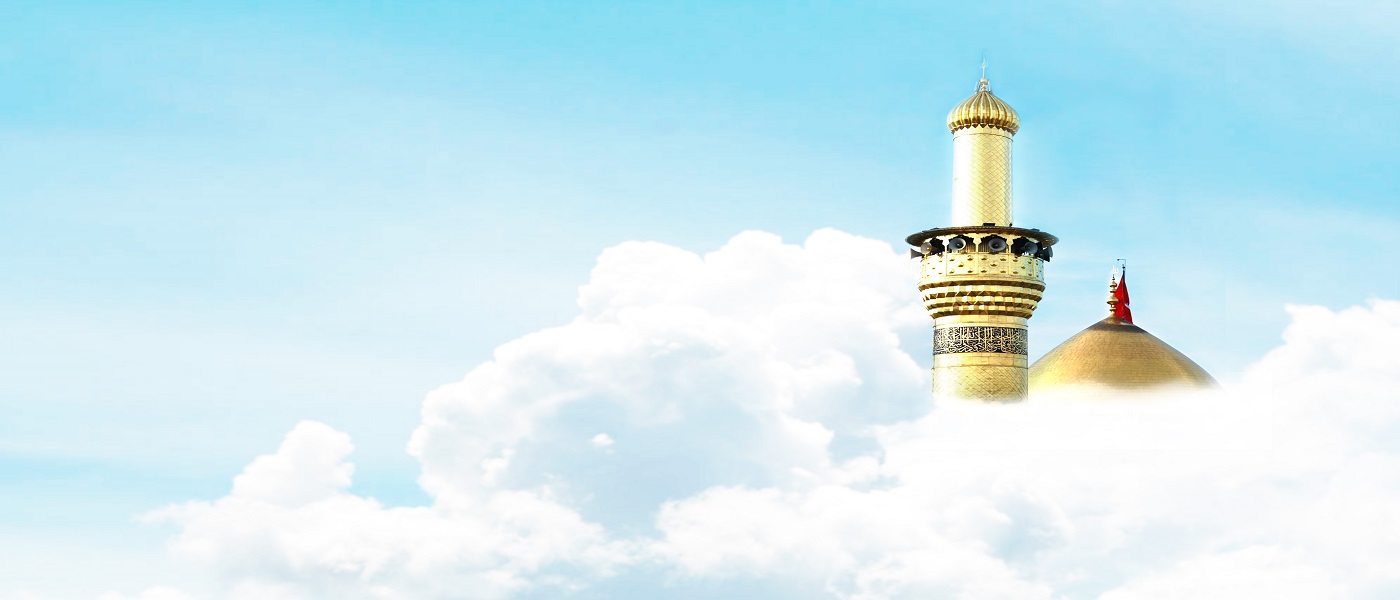

What does Islam say about Free Will?
Whenever you want to make a big decision, you might think about what would be the right choice; which one is better and going to lead you to the right way. When the choice is made and you have followed one way or another, again thousand thoughts appear. And one of those thoughts or questions is: “Was that predestined? Is it me who is making the choice or it was made for me before? What is my will in it?
Allah’s Will of Ours?
Once a man asked Imam Sadiq (AS), “Does Allah make human beings to do or not to do a thing?”
He answered, “Allah is More Just to make a person do a thing and then punish him for that” [1].
Imam Reza (AS) also replied to a similar question with this phrase, “Allah is More Just and Wise to do such a thing” [2].
Divine wisdom and justice do not allow Allah to decide about good and evil acts of human beings, who are created to have a free will and the right to decide for their own fate. He directly refers to the fact that human beings are responsible for what they do and He just shows them the truth in the Holy Quran. They are to choose which way to take and what to do.
“and say 'This is the truth from your Lord. Let whosoever will, believe, and whosoever will disbelieve it.” (18:29)
“Indeed, We have guided him to the path, he is either grateful or ungrateful” (76:3)
So, none of the things we do in this world is the result of divine determinism. But we know that Allah has the ultimate will. He makes decisions, which no one can change. Where does His Will stand regarding human being’s will?
Are human beings the final decision-makers and Allah has no role and consideration in the decisions they make, or Allah makes the final decision and human beings have no part in the things that happen to them , and they have no free will? None! They both work together. For everything we do, both our will and Allah’s will play their own parts. [5]

Who Steals the Money?
Let me give you an example. Imagine a person who is in a terrible financial state and decides to go to his neighbor’s house to steal some money from their strongbox. The moment he decides to do such a thing, he knows that the money does not belong to him and might put the neighbor in trouble. He knows that stealing is not a good thing to do, and it’s against the laws of humanity, Islam, Christianity, and any other faith. At the end of the day, he decides to steal the money and goes to his neighbor’s house.
Well, the guidance is given by Allah, in the holy books, in one’s heart and thoughts, but it’s the person who makes the final decision. One might think that “Well, Allah could stop that man from stealing that money. Why didn’t he?”
The answer is that he surely could, but it is against his greater will to praise the ones who do what he commands them to do and the ones who decide to harm themselves, others, the earth, or the whole world. That is where the difference is made.
Conclusion
To sum up, one should know that Allah wanted us to decide and to choose, and that makes the difference between human beings and other creatures. Allah decides about certain things and guides us to the right path through signs and words He had sent to us. However, we are the ones who choose the way we want to take.
Which way is yours?!
Share This Article

6 Signs of Courage in Imam Hussain (AS) and His Revolution
It takes courage to live in this world. Because if you are alive, then you need to take action. And for taking a decisive step, you need to be courageous. The courage to stand up for an oppressed person, the courage to stand up against discrimination, the courage to stop violence against animals, the courage to preserve the earth, or even the courage to listen to the news of genocide and wish to have the strength to do something for it.
But many of us do not take action. Or do not even care. We may be afraid or may wait for someone else to do something. Say a superman or someone beyond us.
Many philosophers from Plato and Aristotle to modern thinkers regard courage as one of the most vital human virtues. For Plato, courage is “what allows reason to rule, both in the individual and in society.” Aristotle also believes that courage is not just about taking risks but thinking wisely in the face of danger [1]. Taking risks is courageous, but knowing why you are risking is even more critical.
What Makes Courage Different in Islam?
Islam, also, values the attribute of courage highly [i]. In Islam courage is the result of many other virtues. Even more, the reason behind your courageous deed is of more importance than having courage in itself. In other words, you are courageous if you are taking action for the right cause. That is, what you have found belief in after in-depth and rational investigation [ii], and do not forget to be moral along the way.
Imam Hussain (AS) Was Courageous in the true Sense of the Word Because He…
1. Stood up against What Was Wrong
Imam Hussain (AS), saw the injustice that was imposed upon the society of his time and realized how what the rulers called Islam was far from the true teachings of Islam. Oppression, tyranny, unjust use of public property, etc. made life miserable for people.
So, instead of remaining silent and doing nothing, he decided to improve the society. He practiced courage in standing up against what was wrong, and in accepting the dangers of his decision.
Surrendering to and accepting the injustice and oppression, is considered a huge sin in Islam for someone who is capable of standing up against it and can improve the situation. That is one of the reasons why enjoining the right and forbidding the wrong (Amr bi-l-maʿruf and Nahy ʿani-l-munkar) are among the practical principles of Islam; to improve the society and bring awareness to people.
2.Took risks, but not at the Expense of Transgressing Human Values
Imam Hussain (AS) was courageous and stood up against what was wrong. But he never gave up his human virtues for the sake of furthering his purpose. In other words, for Imam Hussain (AS), “the end does not justify the means.” While his enemy was impatient to start the war, he did his best to prevent it by negotiating and bringing awareness to them [1].
He was not afraid of fighting, yet, for him starting a war with the enemy was not the end. Instead, leading them to what is right, toward a life of honor and dignity rather than humiliation and oppression, was his ultimate purpose. Imam Hussain (AS), tried to show that being just is far more important than being courageous. If everyone is just, then no right would be taken away, and you do not need to be courageous to stand up against it [iii].
According to Imam Ali (AS), courage is dependent upon three virtues which complement each other. These are self-sacrifice, not bowing down to humiliation and oppression and not being after making a name for yourself [2]. In his movement, Imam Hussain (AS) exhibited all these virtues. He sacrificed his life and family, did not surrender to the injustice his enemies were imposing, and never cared about his fame but was entirely devoted to Allah’s cause [iv].
3. Insisted on His Right Cause, not any Cause
In Islam, the intention always comes before the action. Imam Hussain (AS) knew well why he was taking action. For him, nothing was more important than Allah’s satisfaction and reviving the true teachings and peaceful message of Islam in the corrupt society of his time [v].
He was courageous for the right cause. Neither was he after usurping the throne, nor manipulating people for his own sake. In that case, he would not be courageous anymore but selfish. As Charles Dickens admitted, “If Husain (as) had fought to quench his worldly desires…then I do not understand why his sister, wife, and children accompanied him. It stands to reason, therefore, that he sacrificed purely for Islam” [6].
4. Was Cautious in his Courage
Imam Hussain (AS) did take a risk in furthering his purpose, but he never acted unwisely and on his whim. When people sent thousands of letters from Kufa to Imam Hussain (AS), to ask for his help and declare their devotion to him, he did not accept their invitation immediately.
Instead, he first sent a representative to their city to validate their claim. Also, on the day of Ashura, despite his enemy's insistence on war, and while he was not afraid of fighting with them, he first tried to reason with them. You cannot be called courageous if you let go of your insight and wisdom and act recklessly [vi].
5. Despite His Strength was not after Making War
As said earlier, Imam Hussain (AS) was not willing to go to war with his enemy. While he was fully capable of fighting with them, and he courageously did it with only 72 people against thousands, he was never in favor of making war without any good reason. He was a courageous leader and guide, not a ruthless tyrant.
Thus, he first tried to guide his enemy toward the true teachings of Islam through speaking and reasoning, but when he saw their insistence on being ignorant, he was forced into a war.
6. Was Strong and Patient when he was faced with Difficulty
It takes courage and spiritual strength to endure the pain of losing your beloved ones. Imam Hussain (AS) lost many of his family members and friends in the battle of Karbala, including his brother and two of his sons. However, while he felt a deep pain in his heart, he never lost his control and power of reason.
And he never regretted his action, nor doubted his cause. He was sure that what he did was for the sake of Allah’s satisfaction and his movement will forever inspire those who are seeking what is right.
Notes:
[i] Imam Ali (AS) said, “Generosity and courage are great attributes that Allah bestows upon whoever He loves most and has examined before”[7]
[ii] “In Islam, faith is nothing beyond human’s reason and understanding; in other words, the axioms of this religion are the fundamental principles that are rational by themselves and can be ascertained by people’s common sense. So stepping onto the stage of this faith depends on the submission that is gained through preliminary investigation of its axioms” [5].
[iii] Imam Ali (AS) said, “ Justice is better than courage. Since if every person is just toward other people, then they won’t need to be courageous” [9]
[iv] On the cause of his movement, Imam Hussain (AS) said,“O' God! Surely you know that whatever we did was not a competition to gain worldly positions and not for the worthless physical attractions of the world. But to show the signs of religious ways and to remove corruption from your lands, so that the oppressed feel secured and act according to your traditions and rules.” [3]
[v] Imam Hussain (AS) said, “My revolution aims to reform the society and revive the true teachings of Islam.” [4]
[vi] Imam Ali (AS) said, “ negligence and not having foresight, spoils the courage” [8].
References:
- al-Shaykh al-Mufid, al-Irshad, p.253.
- Ibn Shu'ba al-Harrani, Tuhaf al-'uqul, p.322.
- Ibid. p.239.
- Ibid. p.243.
- The Islamic Axioms
- HUssain (AS)
- Abd al-Wāhid b. Muḥammad al-Āmidī, Ghurar al-hikam wa durar al-kalim, p.375.
- Ali ibn Muhammad Laithi Vaseti, Oyun al-Hikmah va al-Mavaez, p. 182.
- Ibn Abi al-Hadid, The interpretation of Nahj al-Balaghah, vol 20, p.333.
Read More

What is the Reason Behind Worldly Sufferings According to Islam?
All of us go through hardships and calamities that are not pleasing to us. We have all experienced moments and days of sorrow and suffering; be it one or more of the natural disasters, the loss of health or wealth, the loss of one of our dear ones, or even simpler issues that we face in our everyday life. The number of people who do not complain while they are suffering an incident is very few. Sometimes the calamities are so huge that they put us under severe pressure and take us to the point where we start complaining to Allah and asking Him the famous “why” question: “Why should this happen to me? Why don’t you help me overcome my problem? Why does this suffering seem everlasting?”
If you are one of those who have happened to ask these questions from Allah in specific situations, then this article might be useful to you and to myself, as it tries to answer all the above questions based on the words of Allah and the Islamic traditions.
Worldly suffering in the Quran
We may be surprised in reading the verse of the Quran in which Allah (SWT) says:
“Certainly We created man in travail.” (90: 4)
Why would He do such a thing to us? Was He going to take revenge on us for something? Or does He enjoy seeing us suffering?
The fact is that all different types of problems, sorrows, losses, and sufferings can be looked at from two different perspectives. If one looks at problems and calamities only from a materialistic perspective, one may be able to find a material reason for each; For example, the drought is caused by the lack of rain, the disease is caused by poor hygiene and bankruptcy is a sign of lack of business awareness. But from the Islamic viewpoint, there are several factors influencing these events and disasters only some of which are considered material causes.
Allah tests us
One of the wisdom behind worldly sufferings according to the verses of the Quran is that Allah tests His servants with hardships and calamities, and in this test only those who are patient are victorious:
“We will surely test you with a measure of fear and hunger and a loss of wealth, lives, and fruits; and give good news to the patient.” (2: 155)
It is noteworthy that there is no problem in mourning for our sorrows, feeling down, and even crying over them. We are all human beings, flesh, and blood, and sometimes we feel so burdened by the difficulties of life that we find it hard to bear. Yet one should be wary not to blame Allah for these sufferings and turn his/her back to Him. Instead, we should find the capacity to submit to the fate destined for us by Allah, believing in the fact that Allah is the only One who can save us from these calamities and would never do injustice to us. These are the times we should get closer to Allah and rely on His mercy and help.
But, why would Allah need to test His servants? He mentions in a verse of the Quran that being faithful is not accepted in words only, and to prove one’s faith, he/she should go through different tests:
“Do the people suppose that they will be let off because they say, ‘We have faith,’ and they will not be tested? Certainly, We tested those who were before them. So Allah shall surely ascertain those who are truthful, and He shall surely ascertain the liars.” (29: 2-3)
It is not for Allah (SWT) to find out if we are real believers or not, but by putting us through tests He allows us to see the real level of our faith and try to improve it or leave it as it is.
Therefore, one can conclude that the divine test is performed to separate and recognize the truthful from the false claimants and to make the believers pure. The higher the level of our faith goes the harder the tests become.
Saving human’s faith
Another reason behind worldly sufferings according to Islamic teachings is that Allah (SWT) wants to save and strengthen His servant’s faith. Prophet Muhammad (PBUH&HP) narrated from Gabriel from Allah that:
“Among my faithful servants, there are some whose faith is not amended except by poverty and destitution, and if I make him rich, this wealth will corrupt and destroy his faith. And among my believing servants, there is one whose faith is not corrected except by wealth, and if I make him poor, poverty and misery will corrupt and destroy his faith. ... I guide them by the knowledge that I have of the hearts of my servants. It is true that I am Wise and Knowledgeable.” [1]
Therefore, there are many things that happen to us by the will of Allah which may not be pleasing to us and we may interpret them as sufferings while at the heart of them are great blessings for us:
“… may be that you dislike something, which is good for you, and it may be that you love something, which is bad for you, and Allah knows and you do not know.” (2: 216)

Warning from Allah
Sometimes we are so pleased and drowned in the blessings that Allah (SWT) has provided us that we totally forget our mission and goal of living in this world. In these moments Allah (SWT) tests us with some calamities and puts us through some sufferings to remind us of our goal and warn us about the consequences of neglecting our mission. These little sufferings as mentioned in the Quran are the ones that keep us away from the harder sufferings:
“We shall surely make them taste the nearer punishment prior to the greater punishment, so that they may come back.” (32: 21)
To bring us closer to Allah
Another important reason behind worldly sufferings is that these types of things show the human being how weak he is and how needy he is toward his Lord. It is at the time of suffering that we realize there is nothing we can do to solve the problems and we turn to Allah to ask Him for help.
Allah (SWT) mentions this point in the Quran in different verses:
“When distress befalls you at sea, those whom you invoke besides Him are forsaken. But when He delivers you to land, you are disregardful [of Him]. And man is very ungrateful.” (17:67)
Therefore, hardship and suffering cause us to remember that He is the only One who can help us, thus we turn to Him.
Compensation for our sins
According to Islamic teachings, worldly sufferings are also a way by which Allah (SWT) makes up our mistakes and sins. It is narrated from Prophet Muhammad (PBUH&HP) that:
“The sorrows, sicknesses, and sufferings that befall on a believer are the means of wiping away his/her sins by Allah.” [2]
However, sometimes these sufferings are not to compensate for our sins. We have all seen or heard that sometimes some of the very faithful servants of Allah face huge sufferings. These types of suffering according to Islamic teachings is to elevate the spiritual or even the material capacities of human beings.
References:
- Shaikh Sadough: Al-tawheed. (1398 A.H.), p. 400
- Ali bin al-Husain bin Shu’ba al-Harrani, Tuhaf al-Uqul, p.38.
Read More

